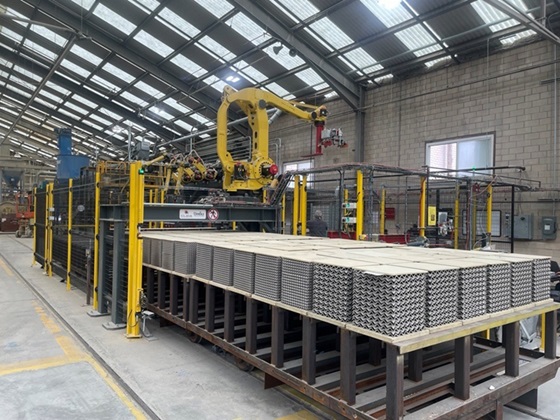Knight Material Technologies (KMT), based in Canton, Ohio, has augmented its production capabilities by incorporating an automated robotic line. This advancement is a response to the rising demand for KMT’s structured packing media, which is predominantly used in corrosive and high-temperature settings typical in various industrial plants and towers.
The company has unveiled that the first production batch from this new line includes FLEXERAMIC structured packing media, primarily utilized in heat transfer processes, notably in regenerative thermal oxidizers (RTOs). Following this, the line will be dedicated to producing diverse variations of FLEXERAMIC, intended for mass transfer chemical processing applications.
FLEXERAMIC is characterized by its proprietary design, featuring geometrically organized corrugated sheets. This design is reported to be more efficient than competitive products, offering benefits such as a reduced pressure drop and a decrease in production energy costs.
Kevin Brooks, the president of KMT, emphasized the uniqueness of their production process, noting, “Nowhere else is structured ceramic packing made in a fully automated, robotic line.” He further highlighted the significance of this development, stating that the automated line ensures consistent quality due to its precise and repetitive movements, leading to products with fewer defects and improved overall quality. Brooks also pointed out the expected benefits of this advancement, including enhanced product quality, increased production volume, and faster delivery times for customers.
This latest addition marks the second major investment by KMT in enhancing its production infrastructure this year. Earlier in February, the company expanded its capacity with a new roller hearth kiln. This kiln is known for its continuous, fast-firing capabilities and is highly effective in maintaining uniform production standards and throughput. The integration of both the automated robotic line and the roller hearth kiln is expected to yield higher production volumes, along with increased consistency and reliability in maintaining quality across all batches.

